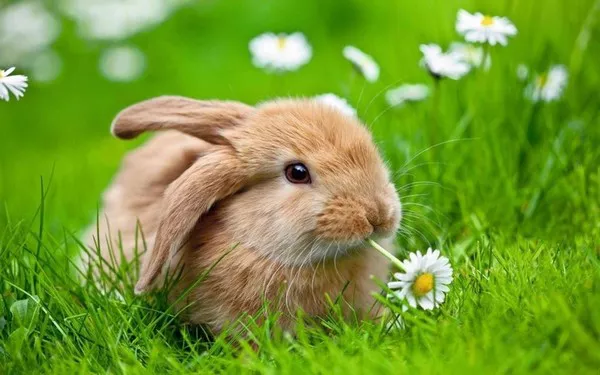Introduction to Rabbit Pregnancy:
Rabbit pregnancy, a fascinating aspect of rabbit husbandry, encompasses a gestation period ranging from 28 to 32 days. During this period, ensuring proper nutrition is paramount to the health and well-being of both the expecting doe and her developing offspring. A pregnant rabbit is termed a “doe,” and her nutritional requirements significantly differ from those of non-pregnant counterparts. This article delves into the essential nutrients, feeding strategies, and signs of pregnancy in rabbits, aiming to equip rabbit owners with the knowledge necessary for fostering a healthy pregnancy and successful birth.
Feeding Pregnant Rabbits: Nutritional Needs:
Pregnant rabbits necessitate a carefully balanced diet to support the physiological demands of gestation. The increased metabolic demands associated with pregnancy necessitate a heightened intake of essential nutrients. Notably, pregnant rabbits require more food than usual as they must sustain both themselves and their growing litter. Moreover, emphasis should be placed on a high-fiber diet and controlled calorie intake to mitigate the risk of obesity, which can complicate pregnancy and birth.
Specific Foods for Pregnant Rabbits:
Alfalfa Hay (80% Daily):
Alfalfa hay, renowned for its high protein, sugar, and calcium content, serves as an excellent dietary staple for pregnant rabbits. Unlike grass hay, such as timothy hay, alfalfa hay provides essential nutrients vital for supporting the rapid growth of fetal tissues. The recommended daily amount of alfalfa hay varies based on the pregnant rabbit’s weight, ensuring adequate nutrition without excessive calorie intake.
See Also:Should I Give My Rabbit Mix or Pellets?
Fresh Vegetables (15% Daily):
Incorporating fresh vegetables into the diet of pregnant rabbits offers an array of vitamins, minerals, and antioxidants crucial for maternal and fetal health. Safe options include carrot tops, radish tops, arugula, clover, lettuce, romaine lettuce, carrots, basil, cilantro, spinach, and celery. It is imperative to prioritize pesticide-free vegetables and wash them thoroughly before feeding. The daily vegetable allowance should be adjusted according to the rabbit’s weight to maintain optimal nutrition.
Alfalfa Hay-Based Pellets (5% Daily):
Alfalfa hay-based pellets serve as convenient sources of essential nutrients, fortified with vitamins, minerals, and protein. These pellets boast higher sugar, protein, and calcium content compared to other variants, catering to the heightened nutritional requirements of pregnant rabbits. The daily pellet allocation should be tailored to the rabbit’s weight, ensuring supplementary nutrition without excessive calorie intake.
Unlimited Water:
Access to clean, room-temperature water is indispensable for pregnant rabbits throughout gestation. Adequate hydration supports various physiological processes, including digestion, circulation, and lactation. Maintaining a constant supply of water ensures hydration and prevents dehydration-related complications during pregnancy and lactation.
Signs of Pregnancy in Rabbits:
Recognizing the signs of pregnancy in rabbits facilitates timely intervention and proper care. Common indicators include crankiness, alterations in eating habits, nesting behavior, weight gain, and fur pulling. While these signs offer valuable insights, definitive confirmation of pregnancy often requires veterinary assistance. Veterinarians can employ techniques such as ultrasound or palpation to confirm pregnancy and monitor fetal development effectively.
Preparing for Birth:
As parturition approaches, observing nesting behavior and identifying signs of labor are crucial for preparing for the imminent birth. Nesting behavior typically manifests as the doe rearranging bedding materials or creating a secluded nest within her enclosure. Additionally, rabbits often give birth during the evening or nighttime hours, aligning with their natural nocturnal tendencies. Monitoring the doe closely during this period enables caregivers to provide necessary support and intervention if complications arise.
In conclusion, optimizing nutrition plays a pivotal role in supporting the health and well-being of pregnant rabbits and their offspring. By adhering to a balanced diet rich in essential nutrients, monitoring for signs of pregnancy, and preparing for birth, rabbit owners can foster a conducive environment for successful gestation and parturition. Prioritizing the welfare of pregnant rabbits not only ensures their individual health but also contributes to the overall vitality of rabbit populations in domestic settings.
Related Topics:

























